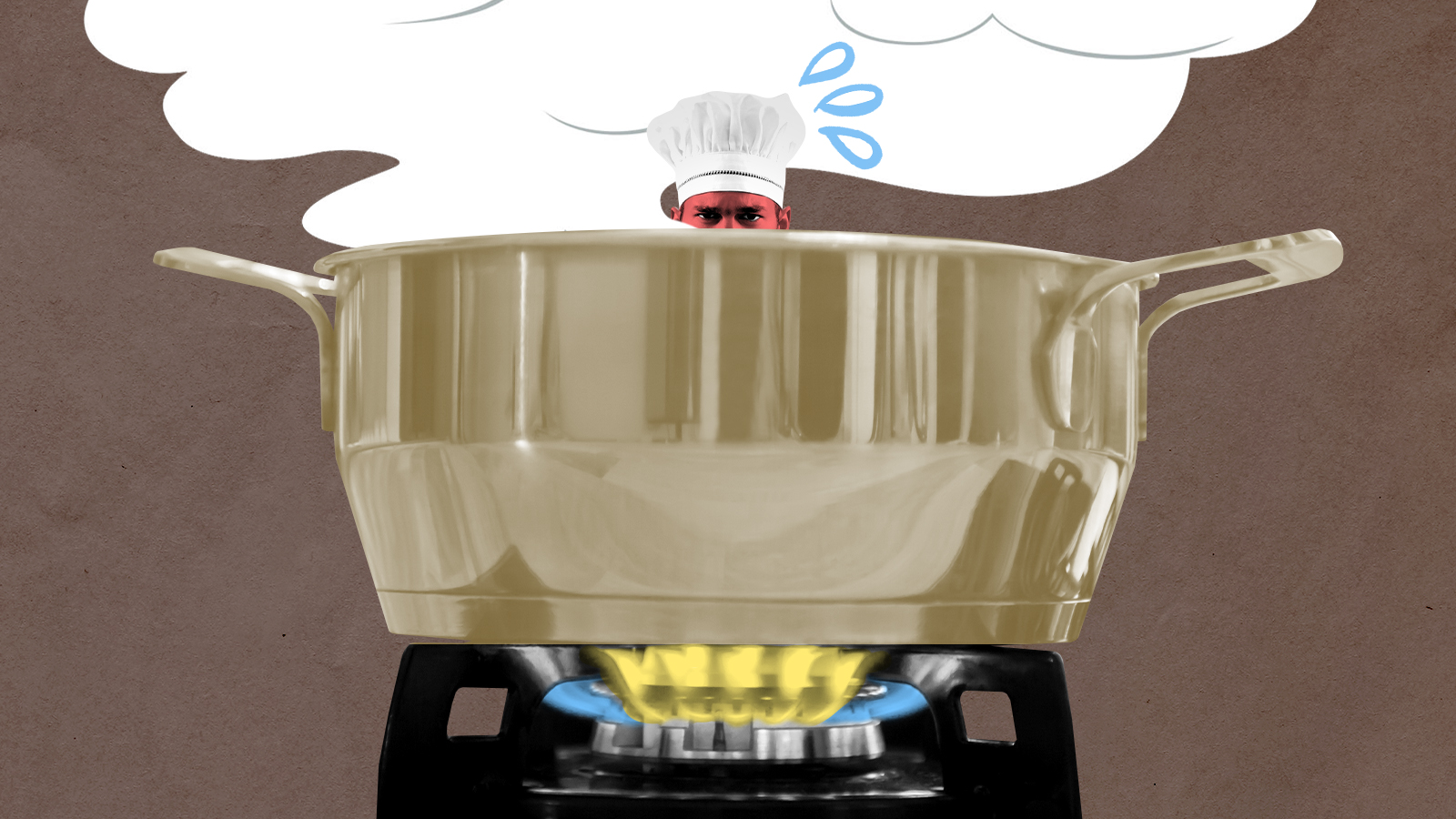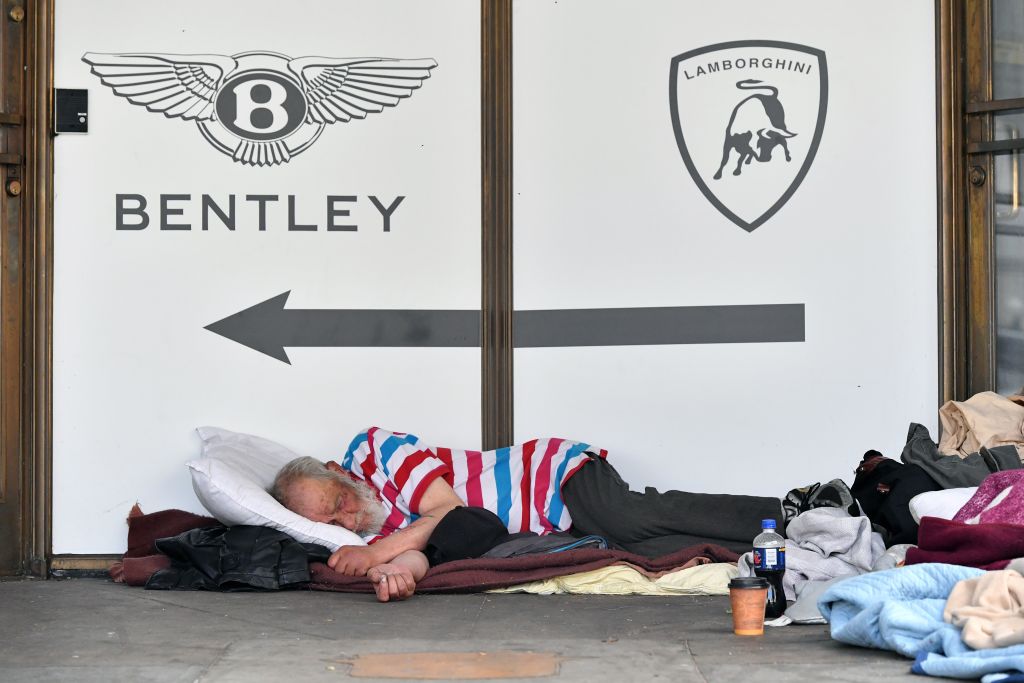The future of fine dining
'Financially and emotionally, as an employer and as a human being, it just doesn't work'


A free daily email with the biggest news stories of the day – and the best features from TheWeek.com
You are now subscribed
Your newsletter sign-up was successful
The owner of one of the world's most celebrated restaurants recently announced that it would be closing to the public, citing the "unsustainable" workplace culture of fine dining. Is the current model for the industry on its way out? Here's everything you need to know:
Why are fine dining restauranteurs coming under fire?
The owners of the globally acclaimed Copenhagen restaurant Noma announced that the restaurant would be closed to the public after 2024, reigniting discussions about the toxic culture of fine dining. The New York Times reports that the decision to close Noma comes amid "a reckoning in the restaurant industry as it grapples with poor treatment of restaurant workers, especially those in fine dining who work long hours (and often endure harassment) for little pay."
Recently, some of the restaurant industry's finest establishments have been exposed for perpetuating a toxic cutthroat work culture behind closed doors. The owners of Noma were accused of relying on unpaid interns to bear the brunt of creating its $500 tasting menus. Noma's owner and head chef René Redzepi wrote an essay in 2015 admitting to verbally and physically bullying his staff. "How can we rectify the screaming and shouting and physical abuse we've visited on our young cooks?" Redzepi asked. "How do we unmake the cultures of machismo and misogyny in our kitchens? Can we be better?"
The Week
Escape your echo chamber. Get the facts behind the news, plus analysis from multiple perspectives.

Sign up for The Week's Free Newsletters
From our morning news briefing to a weekly Good News Newsletter, get the best of The Week delivered directly to your inbox.
From our morning news briefing to a weekly Good News Newsletter, get the best of The Week delivered directly to your inbox.
Over the past few years, numerous well-known restaurants have been the subject of media investigations into working conditions. The Willows Inn, run by Noma-trained chef Blaine Wetzel, closed its doors after a 2021 Times report exposed "systemic abuse and harassment." Blue Hill at Stone Barns and Eleven Madison Park also came under fire after employees revealed the toxic work conditions at the popular fine dining destinations. In 2017, The Washington Post reported on the prevalence of sexual harassment and assault in the restaurant industry.
The prevalence of toxic work environments in fine dining has made its way into the public eye via a recent spat of TV series and films focusing on the pressures of working in the kitchen. Hulu's hit series The Bear expertly captures the abuses of the hierarchical framework that define much of fine dining; Genevieve Yam wrote for Bon Appetit that the show's accurate portrayal of the work culture was traumatizing for herself and other restaurant workers.
"I could barely get through The Bear," she wrote. "Not because I thought it was bad television — but because it was the most accurate portrayal of life in a restaurant kitchen I've seen in a while. It was so accurate that it was triggering."
The culture revolves around a militaristic framework that dictates the hierarchy of kitchen culture, known as the brigades de cuisine, or brigade system."It's an oppressive system that exists within hospitality — and it's existed for way too long — but it still penetrates our industry to this day," Hassel Aviles, the executive director of the industry-based mental health nonprofit Not 9 to 5, told Salon Magazine. "It is oppressive because it asks people to repress their humanity in the name of efficiency."
A free daily email with the biggest news stories of the day – and the best features from TheWeek.com
How are industry leaders responding to critiques?
Restaurant owners are starting to reflect on better ways to do business. "It's unsustainable," Redzepi told the Times of the current fine dining model. "Financially and emotionally, as an employer and as a human being, it just doesn't work." For Redzepi, Noma's next iteration will be a full-time food laboratory that develops new dishes for its e-commerce store Noma Projects. The dining room will be closed except for the occasional pop-up. This will allow him to run a business with a less demanding employee schedule and more financial stability overall.
"We have to completely rethink the industry," he said. "This is simply too hard, and we have to work in a different way."
Other chefs share these sentiments. Chef David Kinch, who recently decided to close his three-Michelin-starred restaurant Manresa, told the Times that "the last 30 years were a gilded age" for restaurant owners to build multiple businesses that bent the rigid formality of fine dining. While he will continue to run his casual restaurant, he said he no longer wants to do fine dining, nor does he want to force his staff to do the "backbreaking" associated with upscale restaurants.
"Fine dining is at a crossroads, and there have to be huge changes," he said. "The whole industry realizes that, but they do not know how it's going to come out."
What does this mean for the future of fine dining?
Redzepi, who has been cooking professionally for decades, hopes revamping Noma will help the industry rid itself of the "production line" aspect of restaurant cooking. "I hope we can prove to the world that you can grow old and be creative and have fun in the industry," he said, per the Times. "Instead of hard, grueling, low-paid work under poor management conditions that wears people out."
The fine dining industry has had to do a lot of pivoting, given the lasting effects of the pandemic on restaurants. A 2021 IBIS World report found that the pandemic hit fine dining restaurants the hardest, and many of them struggled to adjust to more casual or takeout models that became popular during the era, indicating that "the novelty of fine dining seems to be wearing off little by little," per The Takeout.
"None of this is to say there won't be room for fine dining in the future — but it will have to be newly realized if it hopes to succeed," The Takeout clarifies. "And to reassess the model, giants like Noma and Alinea first must fall so that the industry can start from scratch, building something sustainable in their wake."
Theara Coleman has worked as a staff writer at The Week since September 2022. She frequently writes about technology, education, literature and general news. She was previously a contributing writer and assistant editor at Honeysuckle Magazine, where she covered racial politics and cannabis industry news.
-
 How the FCC’s ‘equal time’ rule works
How the FCC’s ‘equal time’ rule worksIn the Spotlight The law is at the heart of the Colbert-CBS conflict
-
 What is the endgame in the DHS shutdown?
What is the endgame in the DHS shutdown?Today’s Big Question Democrats want to rein in ICE’s immigration crackdown
-
 ‘Poor time management isn’t just an inconvenience’
‘Poor time management isn’t just an inconvenience’Instant Opinion Opinion, comment and editorials of the day
-
 The longevity economy booms as people live longer
The longevity economy booms as people live longerThe Explainer The sector is projected to reach $27 trillion by 2030
-
 The rise of the world's first trillionaire
The rise of the world's first trillionairein depth When will it happen, and who will it be?
-
 The nightmare before Christmas: is the party over for the office festive do?
The nightmare before Christmas: is the party over for the office festive do?Talking Point Seasonal cheer and morale-boosting benefits under threat from economic woes and employee disinterest – or dread
-
 The surge in child labor
The surge in child laborThe Explainer A growing number of companies in the U.S. are illegally hiring children — and putting them to work in dangerous jobs.
-
 Your new car may be a 'privacy nightmare on wheels'
Your new car may be a 'privacy nightmare on wheels'Speed Read New cars come with helpful bells and whistles, but also cameras, microphones and sensors that are reporting on everything you do
-
 Empty office buildings are blank slates to improve cities
Empty office buildings are blank slates to improve citiesSpeed Read The pandemic kept people home and now city buildings are vacant
-
 Why auto workers are on the brink of striking
Why auto workers are on the brink of strikingSpeed Read As the industry transitions to EVs, union workers ask for a pay raise and a shorter workweek
-
 American wealth disparity by the numbers
American wealth disparity by the numbersThe Explainer The gap between rich and poor continues to widen in the United States
